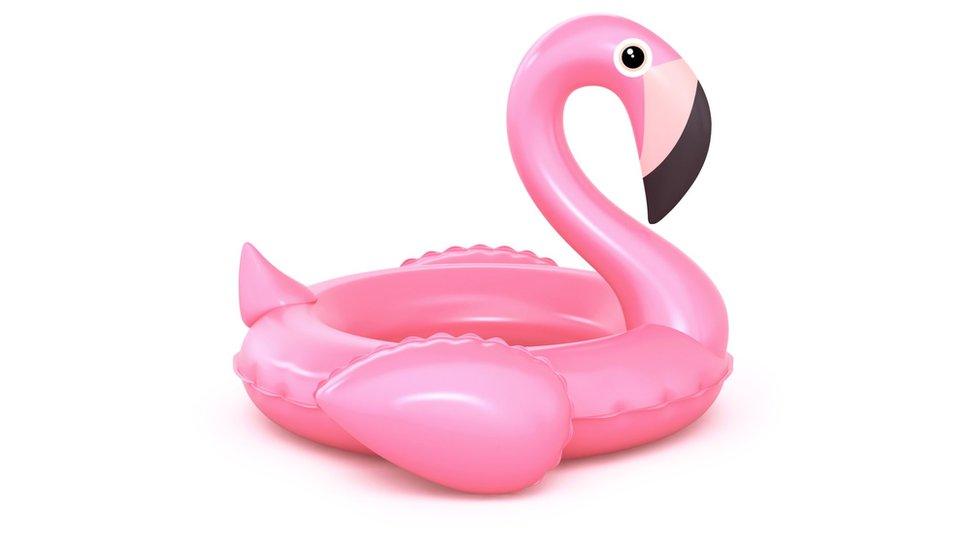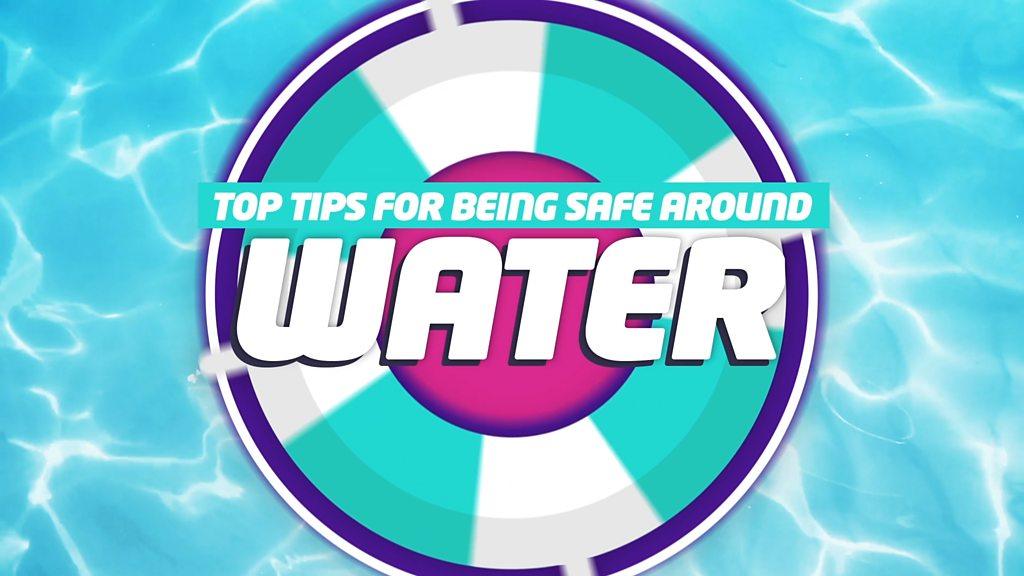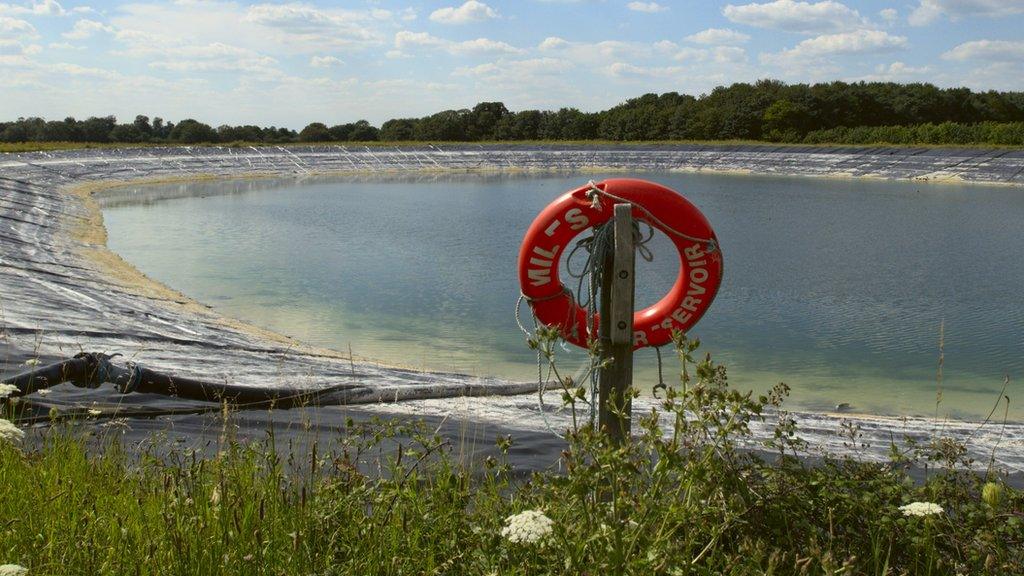Float to Live: Top tips for staying safe in the water
- Published
- comments
WATCH: Ravi survived being swept out to sea using 'Float to Live' technique
Most of the time people are really sensible around water, and accidents are really rare.
But what should you do if you get accidentally swept out to sea?
That's what happened to 10-year-old Ravi, but he followed the advice of the water safety charity, the Royal National Lifeboat Institute - RNLI for short - and was rescued to safety.
Ravi, from Leeds, was pushed more than half a mile away from the shore at Scarborough's South Bay by strong currents, but used the "Float to Live" technique he had seen on a BBC documentary.
He was found floating on his back in the water with his arms and legs spread shouting for help - that's the advice that the RNLI gives to anyone in the water needing assistance.
Ravi said his rescuers were his "heroes".
Float to live

Swimming in the sea is mostly safe - and really fun!
It's unlikely that you'll ever find yourself in a situation where you'll need to use these tips.
But in case you are, this is the main advice given by the RNLI. It's part of the their 'Float to Live' advice which is just how it sounds - if you're struggling in the water, try and float.
They recommend doing the following:
1. Fight your instinct to thrash around.
First, keep calm and try not to panic. Your instinct will be to swim hard - don't.
2. Lean back
Lean back, extending your arms and legs, to keep your mouth and nose out of the water and your airway clear.
3. Gentle movements
If you need to, gently move your arms and legs in a sculling motion (a bit like when using an oar in a boat) to help you float.
4. Catch your breath
Float until you can control your breathing. Do this for 60-90 seconds or until you feel calm.
5. Now think about how to get out
Only now can you think about the next steps. If you can, swim to safety. If someone is nearby, raise a hand and call for help.
Other top tips for staying safe in the water

"Inflatables are not designed for open water," say RNLI
If you're thinking about going for a swim in the sea or a pool and you'd like some more safety advice, look no further!
Read some more advice from the RNLI who want families to leave inflatables at home and be 'beach safe' if visiting the coast this summer.
Make sure you steer clear of swimming in any reservoirs - there are loads of other nice places to swim.
And look at these general top tips for staying safe while swimming.
- Published4 April 2019

- Published30 July 2020

